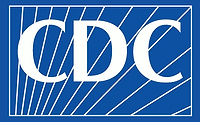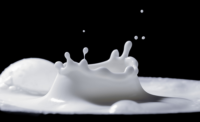Source: The Nation’s Health, a publication of the American Public Health Association
Consuming raw milk is unsafe, and illnesses from the product are more common than previously realized, a new study finds.
The study, published in the January 2014 issue of Emerging Infectious Diseases, looked at people in Minnesota, finding that over a 10-year period, 17 percent of people who consumed raw milk might have become ill.
“Since raw milk is a well-established vehicle for the infectious diseases included in our study, I don’t think this was a surprising finding,” study lead author Trisha Robinson, MPH, a senior epidemiologist with the Minnesota Department of Health, told The Nation’s Health. “If similar work were done in other states, I’m sure they would find similar results.”
She and her fellow researchers noted that even though outbreaks associated with raw milk are frequent, the number of reported cases is probably much smaller than the actual number of illnesses.
“Illnesses associated with raw milk consumption generally are under-reported as typically only outbreak-related cases are reported,” Robinson said.
The study looked at infections caused by several bacteria, including campylobacter, cryptosporidium and salmonella.
About 20,000 cases of illness that met the research criteria were reported to the Minnesota Department of Health from 2000-2010. Researchers excluded cases linked to international travel or where the infection was caused by a bacteria not historically associated with raw milk or that had been already linked to an outbreak related to a different food. Their final analysis, which included about 14,300 cases, found more than 17 percent of people who consumed raw milk in Minnesota during the study time period may have suffered from an associated illness.
The dangers of raw milk and associated products, such as raw milk cheese, have long been recognized. In December, two American Academy of Pediatrics committees released a new policy that supports the position of agencies such as the U.S. Food and Drug Administration endorsing “the consumption of only pasteurized milk and milk products for pregnant women, infants and children.” The policy also supports a ban on the sale of raw or unpasteurized milk products nationwide. The policy noted that 13 types of bacteria, the parasite giardia and three viruses have been detected in raw or unpasteurized milk or milk products. The viruses include rabies and norovirus, and the bacteria include five strains of E. coli.
The Centers for Disease Control and Prevention also warns about the health dangers of unpasteurized milk and milk products. People at greatest risk from getting sick from contaminated dairy products include infants and young children, the elderly, pregnant women and people with weakened immune systems, according to CDC.
“We hope that our study will add to the scientific information available to individuals so they can make an informed decision before drinking raw milk or giving it to their children,” Robinson said.
To access the study, visit http://wwwnc.cdc.gov/eid/article/20/1/12-0920_article.htm.




